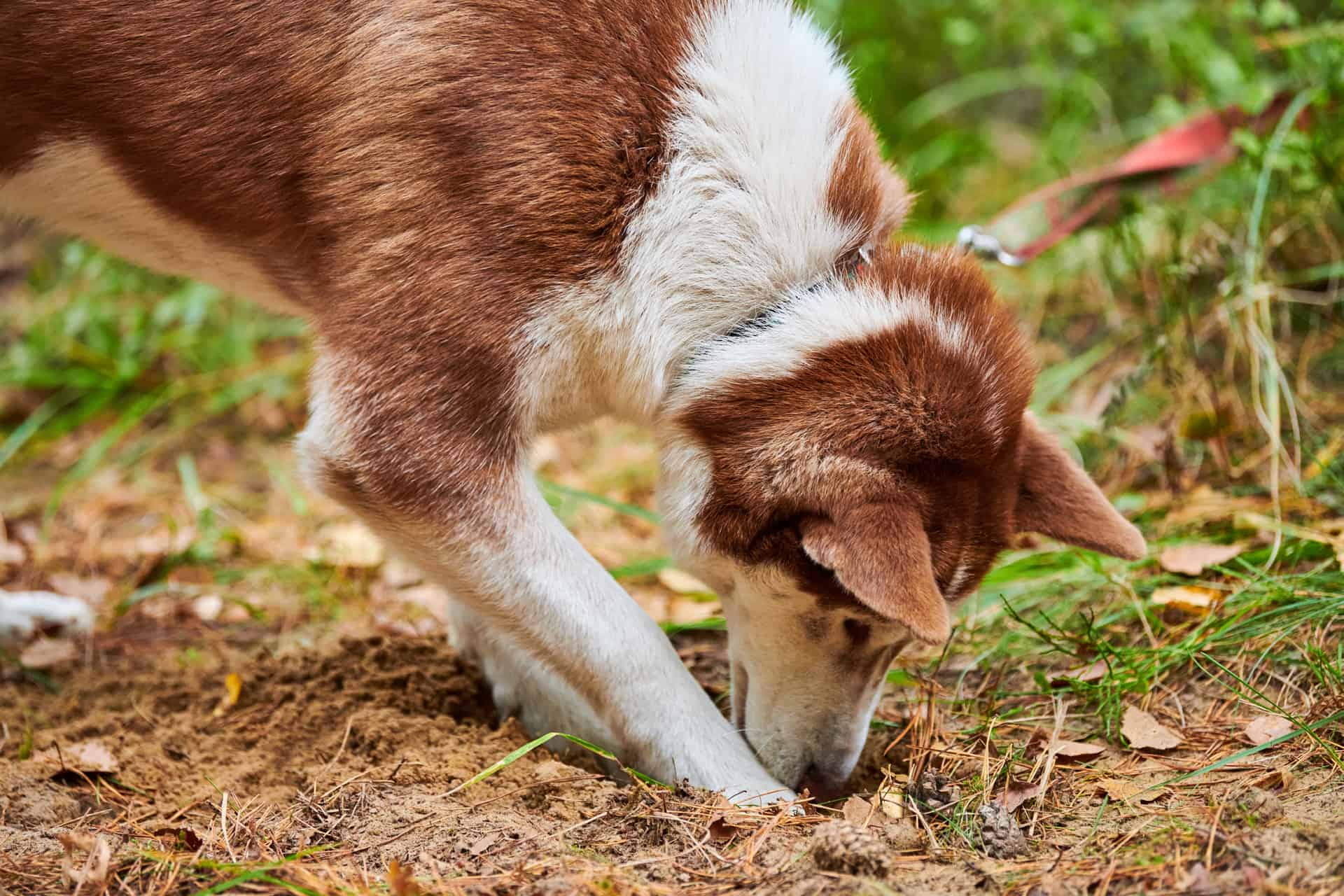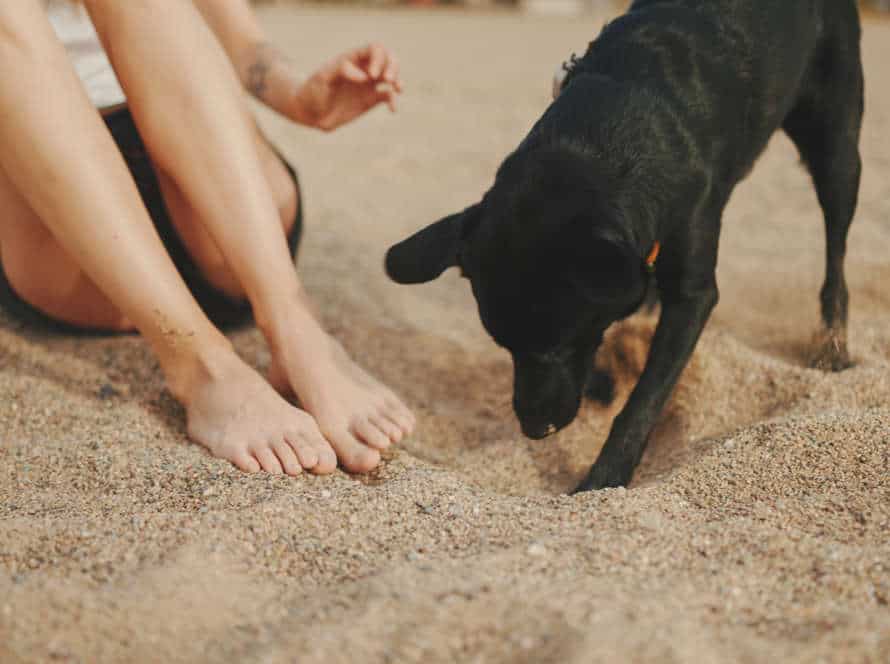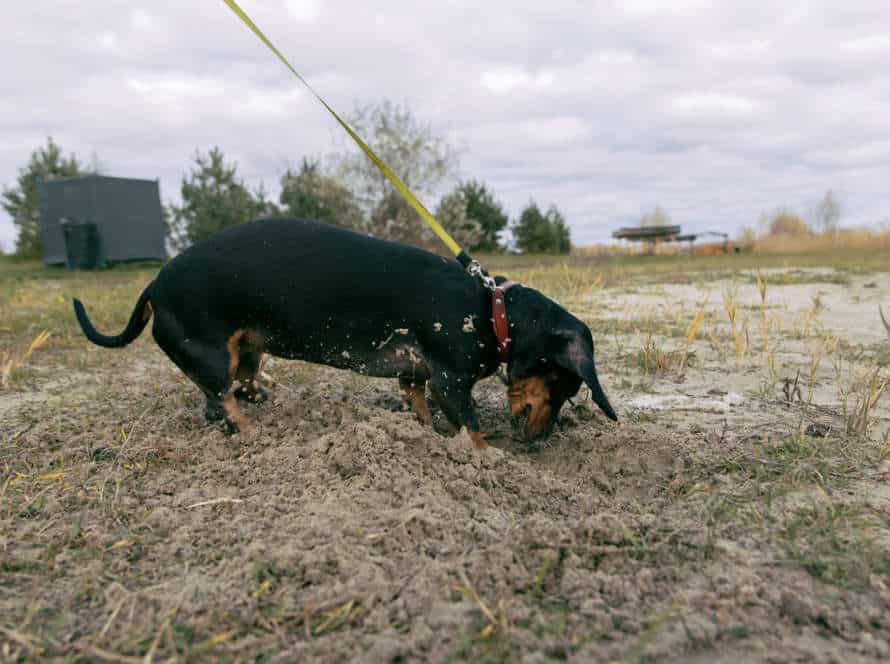The Impact of Age on Your Dog’s Digging Behavior
Age plays a role in your pooch’s digging tendencies. Pups and young dogs may dig out of curiosity or as part of their play. Older dogs may dig for stress relief or to make a cozy spot. Age is key to understanding & managing your pup’s digging. Exercise, playtime & a designated digging spot can help channel energy & avoid destructive behavior. Pro Tip: If you notice a sudden change in digging or excessive digging, check with your vet to rule out medical issues.
How Age Affects Behavior in Dogs
Understanding our pets’ behavior can be difficult. Age is a main factor that influences a dog’s actions. A pup may dig more, whereas an older dog will most likely not. Let’s have a look at how age affects a dog’s behavior further.
Physical Changes in Ages 1-3 years and Digging
Age affects dogs’ behavior and personality. Digging is one of the most common changes. Puppies aged 1-3 years usually dig to explore or burn energy. But, as they grow older, digging usually reduces. This is because older dogs have less energy and curiosity. However, digging could still occur due to anxiety, discomfort or shelter-seeking.
If your pup’s digging is a problem, consider the cause. Provide physical and mental activities to reduce anxiety-driven digging. For older dogs, give them a comfy place to stay. Lastly, look for professional advice.
Physical Changes in Ages 4-7 years and Digging
Dogs experience many changes as they age. These can be physical and behavioural. A common change is digging behaviour. This is often due to age. For instance, 4 to 7 year old dogs may become calmer and less energetic. But, they can still dig – especially if they have a strong prey drive or are bored.
To stop this, make sure your pet gets enough exercise and play. Also, designate a spot in your garden where they can dig.
It is important to figure out why they are digging, such as anxiety or frustration. If this is the case, speak to a vet or dog trainer.
With patience and consistency, you can reduce digging behaviour in dogs, no matter their age.
Physical Changes in Ages 8-11 years and Digging
As dogs age, behavior and physical abilities change. If your dog is 8-11 years old, it is important to prepare for changes in digging patterns.
Physical Changes: Reduced mobility and joint pain can lead to less digging, or no digging at all.
Behavioral Changes: Anxiety, depression, or dementia can cause more digging as a coping mechanism. In addition, dogs may dig to regulate body temperature since their activity levels have dropped.
If you want to help your senior pooch, provide them with a comfortable resting place that is cool in hot weather. Also, low-impact exercise and interactive toys can help stimulate their minds. Remember that old dogs still have lots of love to give, so give them the care and attention they deserve!
Understanding Why Your Dogs Dig
Dogs like to dig, regardless of their age. It could be burying bones or just making a cozy spot. But why do dogs dig, and does age have an influence? Let’s explore!
Age can affect a dog’s digging behavior. We’ll look at how age plays a role.
Instinct and Breed Characteristics
Grasping your pup’s breed features and instinct is essential in figuring out why they dig. For example, terriers were bred to dig for hunting and have a natural drive to do so. Huskies were bred for sledding and could dig to make a cooler area to rest when hot. Dogs may also dig due to monotony or tension, which can be solved with proper exercise and mental activities.
The age of your pup can also affect their digging behavior. Puppies may dig from natural exploration and play, while old dogs could dig because of cognitive decline or physical discomfort. Knowing why your pup is digging helps you take the necessary steps to alter their behavior, like providing areas for digging or solving any anxiety.
Boredom and Lack of Physical Activity
Dogs dig for multiple reasons – boredom and lack of physical activity being the primary ones. They have a natural instinct to dig, and need to expend their energy in physical activities to stay healthy and happy. They may also dig to seek shelter from bad weather.
Age is another factor when it comes to digging behavior. Older dogs may be trying to create a comfortable spot to rest, or alleviate joint pain. It could even be a sign of cognitive decline.
Dog owners can tackle this behavior by providing their pets with proper exercise, mental stimulation, and digging alternatives. Supervising them outdoors and training them to dig in designated areas is also helpful.
Pro Tip: Give your dog interactive toys, scheduled playtime, and brain games for them to release their energy and reduce boredom.
Separation Anxiety and Other Emotional Factors
Dogs may start to dig for various reasons. It could be due to separation anxiety or something else. To understand your pup’s behavior, you need to figure out the cause.
Here are some signs that point to separation anxiety:
- Digging near entry/exit points like doors and windows.
- The digging happens when you’re not around.
- It gets worse with loud noises and thunderstorms.
Age is an important factor too. Young dogs dig for fun and exploration. But elderly ones may be in pain due to arthritis and similar medical problems.
To correct the issue, figure out what’s causing it. Exercise your pet, give them enrichment activities and toys. Also, seek help from a vet or dog behaviorist.
How to Modify Digging Behavior
Dogs can dig for fun or for a purpose, regardless of age. Age does, however, affect this behavior. Knowing how your pup’s age affects their digging can help you modify it.
What to do when your pooch is digging? How to modify their digging behavior based on their age? Let’s find out!
Creating a Designated Digging Area
Designate a spot in your garden or yard for your pup’s digging. Make sure it’s away from plants and grass.
Encourage your pup to dig there. Bury treats or toys in the soil.
Praise and reward them when they dig where they’re supposed to.
If they start digging somewhere else, say “no” firmly. Then guide them to the designated area and reward them.
Puppies may dig due to teething, while older dogs may dig for other reasons. Create an area that meets their needs as they age.
Offering Interactive Toys and Games
Interactive toys and games can be a great way to modify your pup’s digging behavior. Plus, they provide an outlet for their natural instinct! Here are some ideas of interactive playthings to keep your pooch occupied:
- Puzzle toys: These stimulate problem-solving skills, as your pup needs to work to get a treat or toy out of the puzzle.
- Fetch toys: Think frisbees and balls, to get your pup up and engaged.
- Chew toys: These help to relieve stress and boredom, plus promote dental health.
Age is important too! Puppies and young dogs may dig out of curiosity and excitement, while older dogs may dig out of boredom or anxiety. Knowing your pup’s age and behavior will help you choose the right interactive toys and games to keep them entertained.
Training and Positive Reinforcement
Train and reward! That’s the key to curbing your pup’s digging habits. Provide a spot in the yard just for digging. Praise or treat them when they use it. If they’re digging somewhere off-limits, swiftly guide them to the designated area.
Age matters too. Young dogs have more energy, so it’s more difficult to train them. But be patient, consistent, and you’ll get them on the right track!
When to Seek Professional Help
Digging is something that’s typical for a dog. But if your pup digs too much, or in areas that could damage your property, you should get help from an expert.
The age of your dog affects their digging behavior. To address the issue, you should understand why it happens. In this section, let’s look at the impact of age on your dog’s digging and when to get help.
Working with a Certified Dog Trainer
Working with a certified dog trainer can be a great way to tackle your pup’s bad behaviors, like digging. They can figure out why your pup is digging and create a plan just for them.
When you should look for help from a certified dog trainer:
- Your pup’s digging is causing a lot of damage or putting them in danger.
- Nothing you do stops the digging.
- Your pup has other problems like aggression or anxiety.
Remember to think about how age affects your pup’s behavior too. Puppies may dig out of curiosity or boredom, while older dogs may dig because of joint pain or cognitive issues. Knowing the root cause helps you fix the issue better.
Consulting with a Veterinary Behaviorist
If your pup is having digging issues, perhaps it’s time to consult a vet-specialist in behavior. A vet-behaviorist is a certified veterinarian who helps with animal behavior issues. Here are signs you should seek professional help:
- Digging is extreme and destructive, damaging property or creating safety risks.
- Anxiety or stress causes the digging, but traditional training isn’t helping.
- Other problem behaviors, like aggression or anxiety, accompany the digging.
Older dogs may have physical or mental alterations that bring on problem behaviors – like digging. The behaviorist can evaluate your pup and give advice on how to manage their behavior.
Identifying and Addressing Underlying Medical Conditions
Is your pup’s digging behavior different? It could be a sign of an illness. Here’s how to spot it:
- Look for signs of pain, like limping, itching, or biting.
- Check their stool. Are there any signs of diarrhea or constipation?
- Do a full body check-up with your vet – it could be arthritis or gastrointestinal problems.
- If your pooch is older, their digging could mean neurological or cognitive changes. Ask your vet for help.
- Also, check for environmental factors that could be causing digging, like boredom or lack of exercise.
- Be proactive if there are any changes in your pup’s behavior. Treating the illness can help them lead a better life.
Frequently Asked Questions
1. Does age really impact a dog’s digging behavior?
Yes, aging can impact a dog’s digging behavior. As dogs grow older, they may become less physically active and may develop a slowing down of the metabolic rate, which can lead to increased anxiety and boredom, both of which can lead to digging.
2. Why do dogs dig in the first place?
Dogs dig for a variety of reasons, including boredom, anxiety, the desire to escape or find a comfortable spot to rest, or to bury treasures like bones or toys.
3. Can age-related digging behavior be reduced or eliminated?
Yes, there are several things you can do to reduce your dog’s digging behavior as they age. This includes providing plenty of mental and physical stimulation, creating a designated digging area, or providing your dog with a comfortable spot to rest indoors.
4. Should I punish my dog for digging?
No, punishing your dog for digging is not recommended as it can actually increase their anxiety and boredom, which may cause them to dig even more. Instead, try redirecting their behavior and rewarding positive behavior with treats and praise.
5. Are certain breeds more prone to digging behavior as they age?
Yes, certain breeds like terriers and dachshunds are bred to dig and may have a higher likelihood of digging behavior as they age. However, any breed or mix can develop digging behavior with age.
6. Is digging behavior always related to age?
No, digging behavior can occur at any age and can be related to a variety of factors, including behavioral issues, separation anxiety, or a medical condition. It’s important to consult with your veterinarian if your dog’s digging behavior suddenly changes or becomes excessive.







